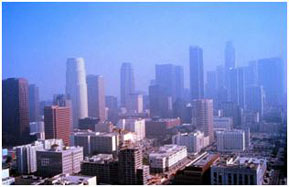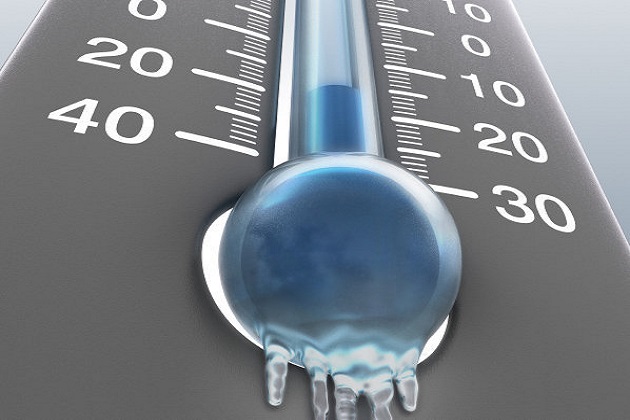When submitting plans for review by Westchester County, select the plans below which will complete the submission as required by Westchester County and New York State Regulator codes. If all the submitted documents are in order, an efficient review and timely approval of the project can be realized.
The application forms and guidelines provide the minimum requirements for a submission to this department regarding various projects; however, the reviewer of the project may require additional information to be submitted to complete the review and approval process.
New Local Law
Local Law Intro #9014-2016 adopted on June 20, 2016 and approved by the County Executive on June 27,2016 amends provisions of the Westchester County Sanitary Code to prohibit the use of fuel oil grade #6 on and after July 31, 2018 and fuel oil grade #4 on and after July 31, 2020 in stationary combustion installations.

What is air pollution?
- Air pollution is caused by hazardous substances in the air that can increase your chances of experiencing health problems if exposed to them.
- It comes from many different sources, including factories, power plants, cars, buses, plans and naturally occurring sources such as wind-blow dust.
- The two most common pollutants are ozone (smog) and particulate matter (pollen, soot, dust, etc.).
- Ozone irritates the respiratory system and may cause decreased lung function.
- Ozone alerts are occasionally issued by the New York State Department of Environmental Conservation, usually on hot summer days when the air is stagnant
What are the impacts of poor air quality?
Everyone can be affected by poor air quality. However, children and those with chronic respiratory problems are the most sensitive to air pollution. Childhood asthma is on the increase nationally, and environmental pollutants may contribute to this trend. People with chronic respiratory problems experience an aggravation of their symptoms with air pollution.
What can you do to reduce air pollution and thereby improve air quality? You, as an individual, can do a number of things, such as:
- Drive less, ride your bike or walk
- Carpool
- Make sure your car is well-tuned
- Take care not to spill gasoline when filling the tank of your car, lawn mower or recreation equipment
- Make sure that chemical product lids are closed tightly
Find out: How clean is the air you breathe?
Environmental engineers and sanitarians monitor the permitted releases from industrial and commercial facilities to ensure compliance with State regulations. They seek to protect our ambient air quality through plan reviews and approvals of industrial processes, as well as through inspections in response to complaints from County residents.
The application forms and guidelines provide the minimum requirements for a submission to this department regarding various projects; however, the reviewer of the project may require additional information to be submitted to complete the review and approval process.
The environment we live in influences so many aspects of our life. The food we eat; the water we drink; and the air we breathe are just a few things that can affect our health.
Learn more about the environment in Westchester County and what the Health Department is doing to protect your health.
The Cross Connection Control Program’s goal is to protect the public water supply by preventing the flow of non-potable water into the distribution system. The water purveyors are required by Part 5 of the New York State Sanitary Code to protect the distribution system by requiring customers with potential cross connections to install a backflow prevention device.
For more information regarding the Cross Connection Control Program, go to the Environmental Protection Agency and the New York State Department of Health.
What to do next
Customers are required to contact their local water purveyor for the proper type of the backflow prevention device required for their facility. Prior to installation of the device, an application packet, which must be prepared by a New York State licensed and registered professional engineer or registered architect, is submitted to the water purveyor for their original endorsement and signature and then is forwarded to the Westchester County Department of Health for review and approval.
Upon completion of the installation of the device, customers are required to have the device tested by a New York State licensed tester and to submit the completed form DOH-1013 to the water purveyor and WCDOH.
Application Packet Information
- Instruction to Request to Install and Completed Works for a Backflow Prevention Device (Updated 3/2022)
- Application for Approval of Backflow Prevention Device Form DOH-347
- Report on Test and Maintenance of Backflow Prevention Device Form DOH-1013
- Instructions for completing DOH-1013 (Rev. 1/2019)
- Certificate of Resolution for Authorization (fillable)
Additional Information
- List of NYSDOH Approve Backflow Prevention Devices (updated 7/2020)
- List of Certified Backflow Prevention Device Testers (NYSDOH) Rev. 4/2021
- NYSDOH Backflow Prevention Program
- Cross-Connection Control (EPA)
 In accordance with the International Property Maintenance code, Section 602.3, heat at a temperature of 68°F, regardless of outdoor temperature, must be supplied from Sept. 15 through May 31 to tenants in multiple dwellings. The exception to this is when the outdoor temperature is below the winter outdoor design temperature for the locality, (15°F for Westchester County, NY), then maintenance of the minimum room temperature is not required, provided that the heating system is operating at its full design capacity.
In accordance with the International Property Maintenance code, Section 602.3, heat at a temperature of 68°F, regardless of outdoor temperature, must be supplied from Sept. 15 through May 31 to tenants in multiple dwellings. The exception to this is when the outdoor temperature is below the winter outdoor design temperature for the locality, (15°F for Westchester County, NY), then maintenance of the minimum room temperature is not required, provided that the heating system is operating at its full design capacity.
Tenants/occupants should speak to their building manager or landlord first to try to resolve any landlord-tenant complaints they have. If this does not lead to a resolution, contact your local town/city building department.
Residents who are eligible can receive financial help to heat their homes this winter. To find out more about eligibility, call United Way's 2-1-1 or the Department of Social Services at 995-3333. You may also check your eligibility by going to myBenefits.ny.gov. Applications can be downloaded from the Department of Social Services’ Website.
